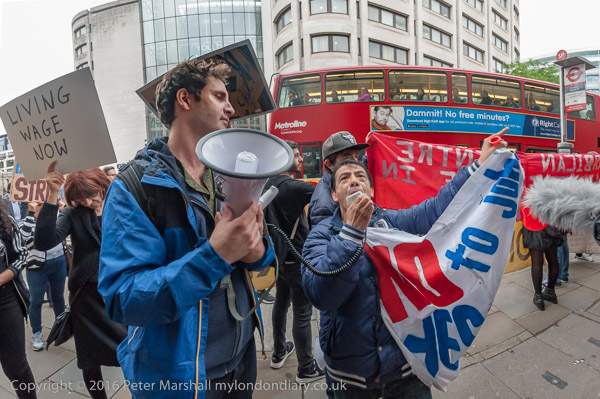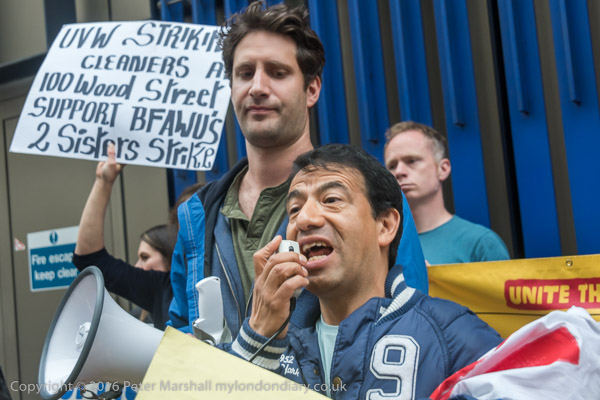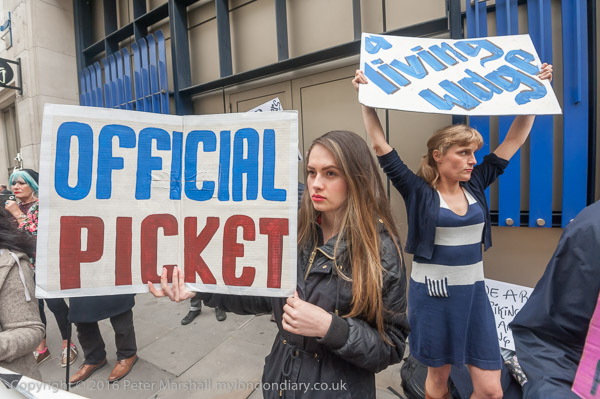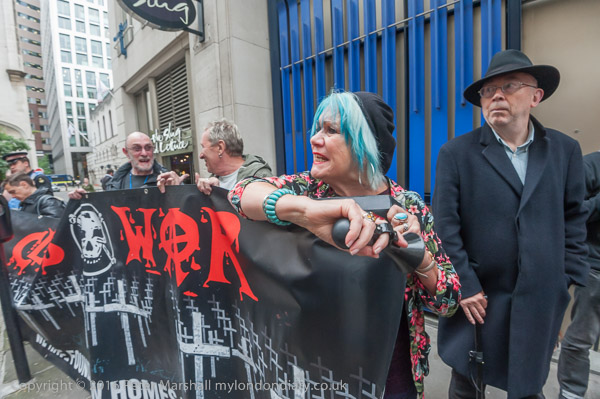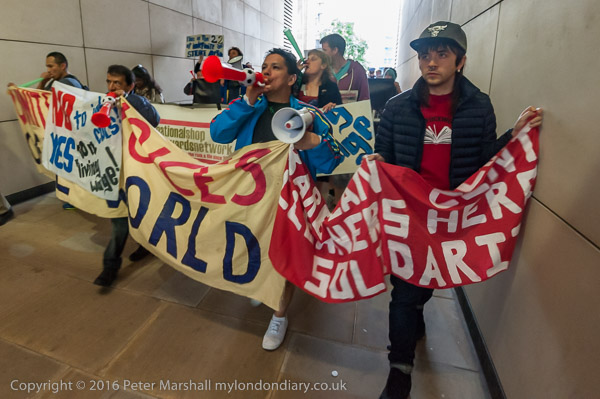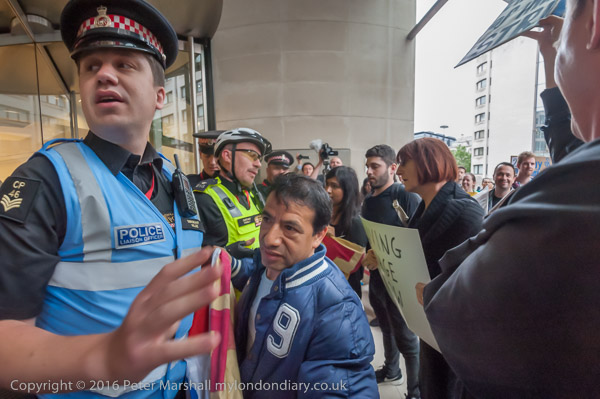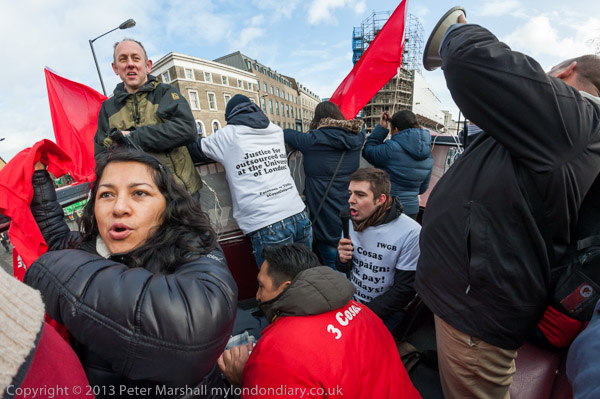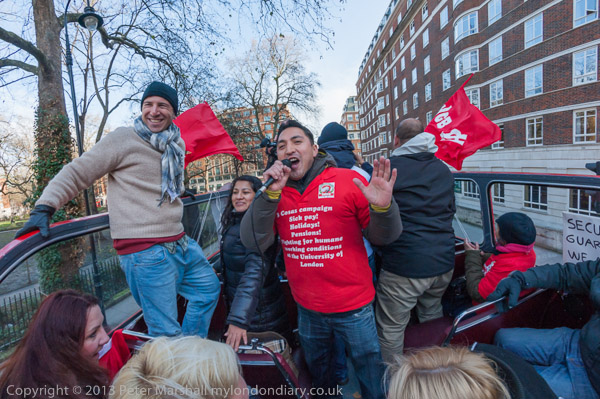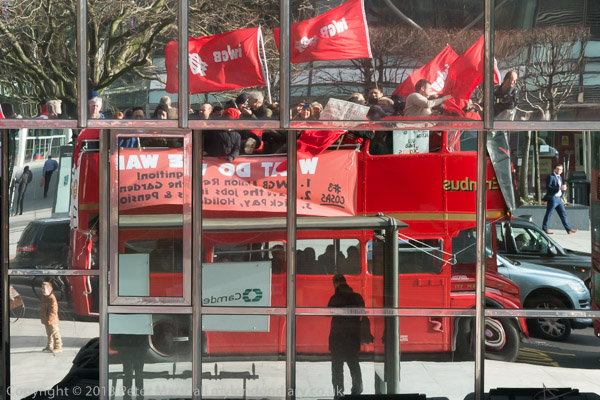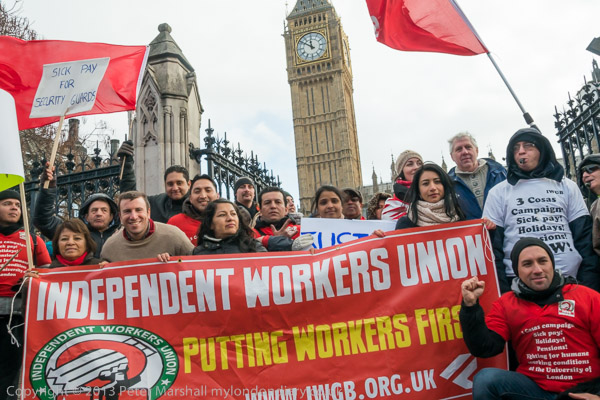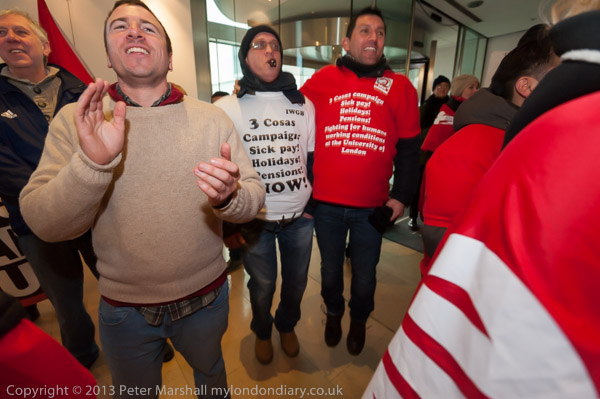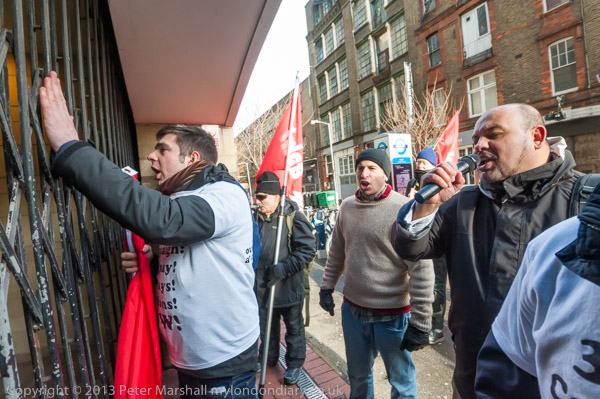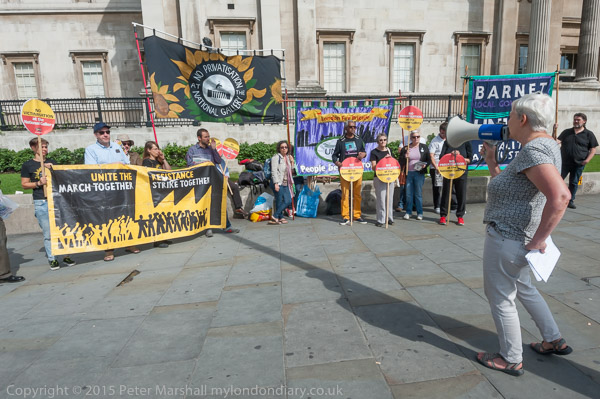
I began my working day rather later than the pickets outside the National Gallery, who held a short rally after picketing since the early morning on the 61st day of their strike against plans to outsource the jobs of 400 gallery assistants and the sacking of PCS union rep Candy Udwin for her union activities.
More at: National Gallery 61st day of Strike
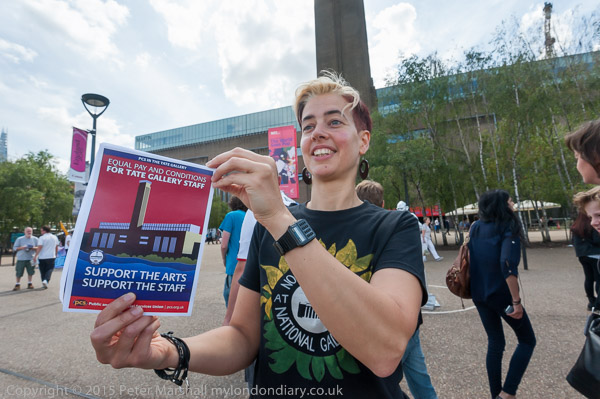
A related protest against the privatisation of visitor assistants was taking place a little later outside Tate Modern on Bankside, with workers giving out leaflets calling for equal pay and conditions for outsourced and in-house workers at both Tate Britain and Tate Modern in London. Privatised staff doing the exactly the same job have zero hours contracts with no guarantee of regular work, get £3 an hour less, and do not get the decent pensions, sick pay and holidays enjoyed by their colleagues.
More at: Equalitate at Tate Modern
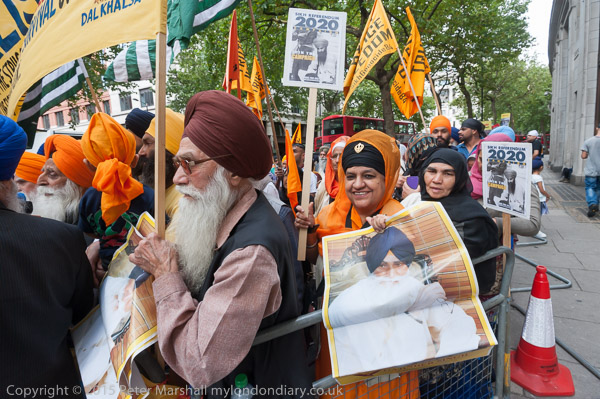
Back over the river to Aldwych and the Indian High Commission, where two protests were taking place on Indian Independence Day. Sikhs were supporting the call by hunger striker Bapu Surat Singh, now on hunger strike for over 200 days, calling for the release of Sikh political prisoners and other prisoners of all religions who have completed their jail terms but are still in prison.
Many of the Sikhs held posters of Gajinder Singh, a founding member Dal Khalsa which calls for an independent Sikh state, Khalistan, and they called for a referendum to be held in the Punjab and among the Sikh diaspora around the world on the setting up such as state.
More at: Sikhs call for release of political prisoners
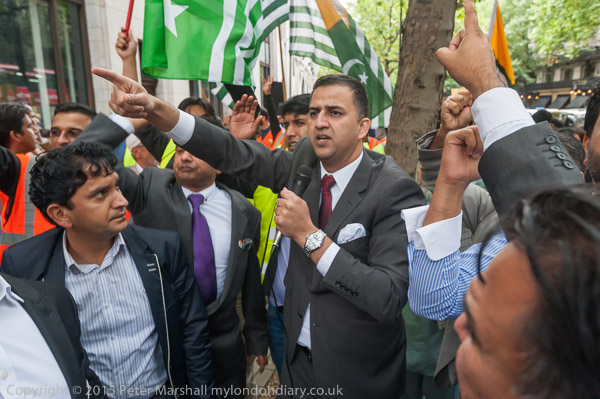
Also protesting outside the Indian High Commission were a crowd of Kashmiris calling for freedom. Kashmir is a disputed territory with parts occupied by India, Pakistan and China, and since 1987 the Indian occupation has turned their area into one of the most militarised places in the world, with around one Indian soldier for every 14 Kashmiris.
Over 100,0000 Kashmiris have been killed since the current uprising against Indian occupation began in 1987, and torture is used as a mean to get confessions and terrorise the civilians including women and children. In Kashmir Indian Independence day is observed as ‘Black Day’.
More at: Kashimiris Independence Day call for freedom
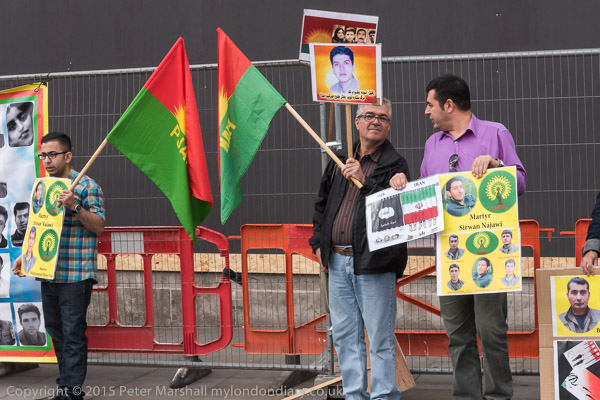
Back in Trafalgar Square Iranian Kurds from the Party of Free Life of Kurdistan (PJAK) remembered its fighters killed in the fight against Iran and ISIS for self-determination. Like the PKK, PJAK owes allegiance to Abdullah Öcalan and the ideals of the Rojava revolution.
More at: Kurdish PJAK remembers its martyrs
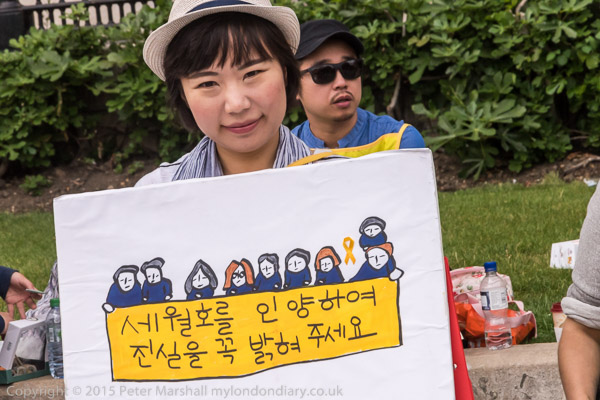
A few yards away, Koreans were holding their monthly silent protest for the victims of the Sewol ferry tragedy, mainly school children who obeyed the order to ‘Stay Put’ on the lower decks as the ship went down. They continue to demand that the Korean government raise the Sewol ferry for a thorough inquiry and punish those responsible as well as bringing in special anti-disaster regulations.
More at: 16th ‘Stay Put’ Sewol silent protest
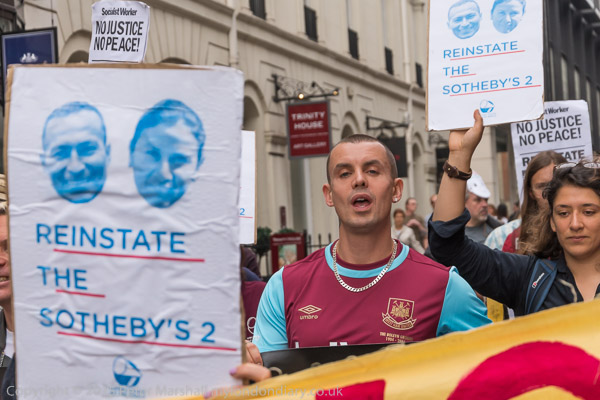
Finally I made my way to Oxford Circus to meet members of the United Voices of the World and supporters including those from SOAS Unison, the National Gallery strikers, Class War and others who were marching to protest outside Sotheby’s in Old Bond St. The UVW werecampaigning for proper sick pay, paid holidays and pensions for the cleaners who work there, and so far Sotheby’s response had been to sack two of the union members, Barbara and Percy.
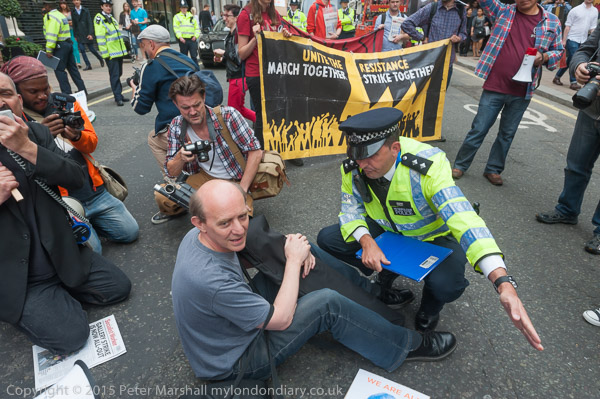
Police harassed the protesters as they arrived outside Sotheby’s, trying to move them off the road they were marching along and onto the pavement, and they responded by sitting down on the road and refusing the police orders to move. After some minutes they got up and marched around the block, past the rear entrance to Sotheby’s, with two union officials going into some of the shops on the way to hand out leaflets explaining the action. Police tried to stop these two going into the shops and some arguments developed.
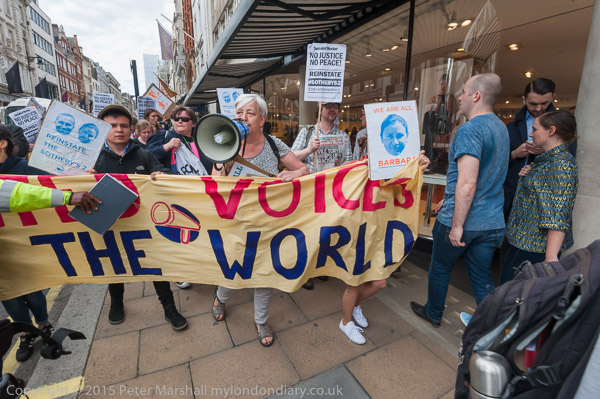
The marchers returned to the street in front of Sotheby’s and held a short rally, again ignoring police who tried to move them off the road. Police then tried to stop them marching around the block again, holding some while others surged around and the marchers made another circuit, returning to Sotheby’s for a short final rally before marching back towards Oxford Circus.
More at: United Voices – Reinstate the Sotheby’s 2.
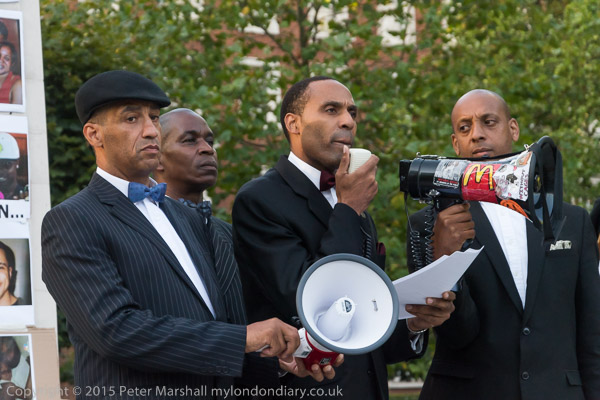
My day wasn’t quite over, and I moved to Grosvenor Square, where two young women, one black and one white, had organised a Black Lives Matter protest close to the US embassy in solidarity with events across the US against the collective and systemic unlawful arrests and killings of black people in America. The protest around the statue of Franklin Delano Roosevelt was supported by groups including BARAC (Black Activists Rising Against Cuts) and the Nation of Islam.
More at: BlackoutLDN solidarity with Black US victims.
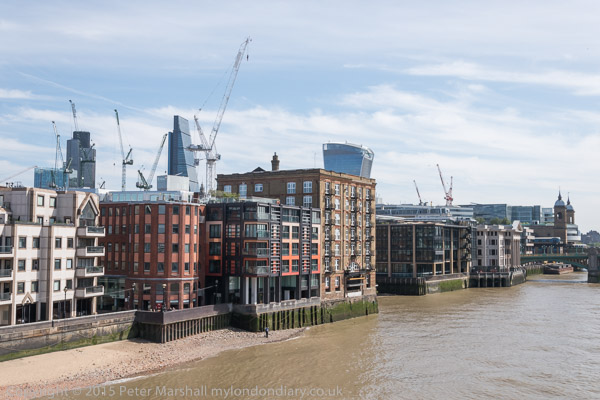
In all the travelling around central London on foot or by bus, I had time to take a few pictures between protests.
More at: London Views.
All photographs on this and my other sites, unless otherwise stated, are taken by and copyright of Peter Marshall, and are available for reproduction or can be bought as prints.
